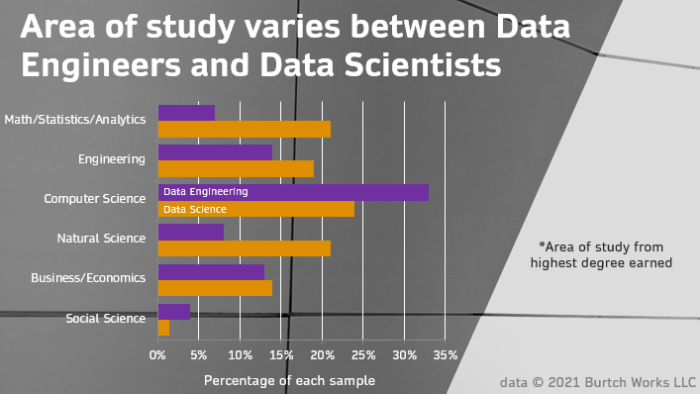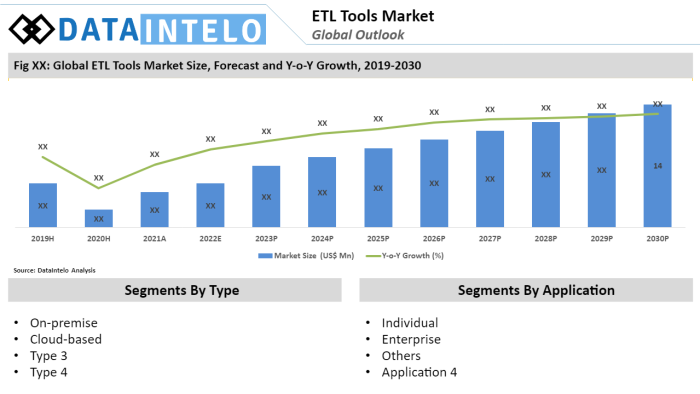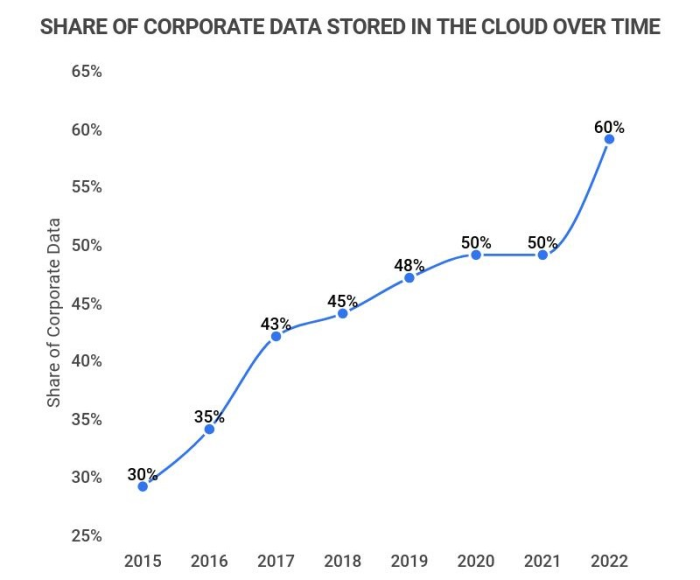6 Skills You Need to Become a Data Engineer
 Publié le 3 May 2023
Publié le 3 May 2023
Build a successful career in the tech and computer science sectors by learning 6 skills you need to become a data engineer.
If you are at the beginning of your career path or considering a career switch, then the world of IT and tech can be very attractive. From online data entry jobs from home to data scientists integrated into large corporations, there is a wide range of tech-related jobs that can offer good salaries and benefits throughout a steady career.
For example, if you are interested in becoming a data engineer, you could be looking at a base salary of around $95,000 at entry level. These figures make it an attractive career path for people with the requisite skills.
Of course, it’s not just a case of turning up and doing the job. There are required skills to become a data engineer, and it’s not a role for everyone. For that reason, it’s worth arming yourself with the most in-demand technical skills.
With the right skills and knowledge, you could benefit not only from lucrative compensation, but also job security. Why? Because people and businesses are generating more data on a daily basis than ever before.
In fact, the world creates 3.5 quintillion bytes of data every single day (that’s a one followed by 19 zeros!). In terms of a career choice, that means you will potentially have job security for years to come, leading to increasing your base salary as you gain experience and develop new skills.
Let’s take a closer look at the 6 skills you need to become a data engineer and work towards a rewarding career path in the tech industry.
What is a Data Engineer?

Image Sourced from burtchworks.com
The first thing to note is that not all data engineers start at ‘square one’. Many people who decide to become data engineers are already working in IT as software engineers, business intelligence analysts, or similar roles. If you are good in your role, you may progress to management or positions such as data architects or machine learning (ML) engineers.
In some cases, IT outsourcing can also help companies gain access to specialized data engineering expertise.
While you will find data engineers in a variety of settings, the job function is typically the same. They are usually responsible for building data systems that can collect, manage, and transform raw data into information that can be more easily interpreted by business analysts or data scientists. Put more simply, their job is to make data accessible.
If you choose to become a data engineer, you might find yourself undertaking any of the following tasks:
- Acquiring datasets that meet your organization’s needs.
- Designing and using algorithms that can help transform raw data into useful information.
- Ensuring your organization’s use of data complies with relevant governance, security, and privacy laws or regulations. Knowing how data engineers can help with governance and compliance is crucial.
- Working closely with relevant management to better understand the company’s objectives in collecting data.
- Developing appropriate database pipeline architectures.
- Identifying or creating validation methodology and appropriate data analysis tools.
6 Skills You Need to Become a Data Engineer

Image Sourced from projectpro.io
If you want to become a data engineer, there are certain skills you must have already or intend to learn. While you should always be eager to expand these abilities or undergo advanced training while on the job, you need to have a solid foundation of entry-level skills.
Use the following list of essential 6 skills for data engineers to identify any gaps in your knowledge.
1. Coding
Central to your role in data engineering is the ability to link your company’s database with various applications across different operating systems (OS). These can include web applications as well as those on mobile devices, desktops, or the IoT (internet of things). An enterprise language such as Java is handy with tech stacks that are open source, while C# can help you when it comes to stacks that are Microsoft-based.
However, the two main coding languages you should focus on are Python and R. The former can be crucial for advanced coding as it can help you in a range of data-based operations. Other coding languages that may be useful include SQL, Scala, and NoSQL.
2. Databases and Data Modeling
It will come as no surprise that if you want to become a data engineer, you need to have a robust understanding of data modeling and the databases you will be using. Data modeling is an essential skill for anybody working as a data engineer, as you will use those techniques to design and execute data pipelines.
You need to be able to work with databases and data warehouses so that you can ensure they are optimized for your current needs and are easily scalable to meet future demand. You should also be knowledgeable about the differences between and uses of relational and non-relational databases.
3. Extract, Transform, and Load (ETL) Systems

Image Sourced from dataintelo.com
It is likely that your organization will have multiple databases that can vary in size and complexity. However, for optimum analysis and business intelligence (BI) purposes, you want that data to be collected in one central repository, which is usually your data warehouse.
You need to be able to create that data warehouse and have the data engineering skills to extract from the various databases and transform it into the data form you want to work with.
Various ETL tools will be helpful to learn, including Talend, Stitch, and Alloma. Many data engineers also learn to work with Hadoop, which is a collection of open-source utilities that make working with big data easier. It can help you create a framework for distributing and processing big data.
4. Data Warehousing
Given the amount of data a company produces on a daily basis, to become a data engineer means you must have knowledge about how to store that data. The two main ways of storing data are data warehouses and data lakes. It’s worth understanding the differences between the two and how to build and use each.
The main thing to remember is that a data lake is where you will store all your raw data that is unprocessed and unstructured. You can store data in a data lake until it is needed. Once processed, you would transfer data to the data warehouse so that it can be accessed and analyzed according to your organization’s needs.
5. Automation and Machine Learning (ML)
With such huge amounts of data, it is inevitable that some tasks are repetitive and prone to human error. If you are working with big data, it is essential that you have an in-depth knowledge of automation. This way, you can write scripts that automate repetitive tasks, allowing you to focus on other aspects of your role.
While some people may argue that machine learning is not a prerequisite to become a data engineer, it is a helpful skill to have. Although it will be used more by your company’s data scientists, knowing the basics and examples of machine learning models means you can better understand their needs when it comes to the data you are engineering.
6. The Cloud and Security

Image Sourced from zippia.com
Data is increasingly stored in the cloud. In fact, as of 2022, more than 60% of corporate data is stored in the cloud. This means that you need to have at least a basic knowledge about cloud computing and cloud storage, and be prepared to learn more over time. A good starting point would be to take online courses in cloud computing.
Depending on the sector you work in, cybercrime can be a very real threat, even when working in the cloud. More than 422 million people were affected by data theft in 2022 alone. Your organization may have dedicated cybersecurity staff, but in many cases, it can fall to data engineers to ensure that data is securely managed and stored. Having a robust understanding of security measures can help you in your role.
The Takeaway
There can be a lot to learn if you want to become a data engineer, and the job always brings with it a lot of responsibilities. To ensure you have the skills to succeed, you may consider taking courses such as the Databricks data engineer certification or gaining hands-on experience with specific programs.
Being able to identify the relevant skills you may already have and those you need to acquire is the first step to a successful career path.
You may find that even entry-level positions will require evidence of pertinent qualifications or, in some cases, proof of the necessary technical skills in previous posts. That said, some employers will accept knowledge gaps, so don’t panic if you don’t know the answer to ‘what is Bayesian Neural Network?’.
But before you apply for a role, it can help if you have identified those gaps and the ways you plan to fill them. Your starting point may be a computer science degree, which can be expanded upon if you want to become a data engineer. If you can clearly identify the technical skills that you lack, then you should construct a plan for acquiring those skills: how you will do it, with who, and when.
As with any job, showing a willingness to learn 6 skills you need to become a data engineer and stay on top of industry trends increase your chances of securing a good job and excelling in your career in data engineering.







